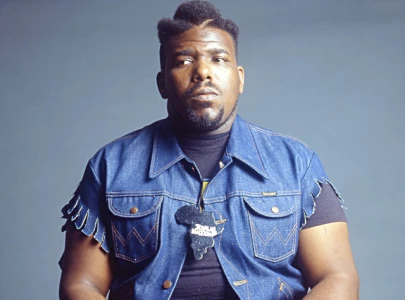
World powers and Iraq's top Shia cleric, Grand Ayatollah Ali al-Sistani, have piled pressure on MPs to put aside their differences, with the country facing a major rebel-led onslaught that has overrun territory in the north and west, but progress has so far been noticeably lacking.
US media was reporting that a Pentagon assessment of Iraqi security forces has reached some bleak conclusions.
According to The New York Times, the assessment warned that any American troops serving as advisers would face safety risks given infiltration of the Iraqi army by extremists and Iran-backed troops or militia.
Citing US officials, the newspaper said the classified assessment also found that only about half of the Iraqi army's units are capable enough to be worth advising by American troops.
Fighters from the Islamic State (IS) group meanwhile attacked Monday the final area still outside their control in the town of Dhuluiyah, just 80 kilometres north of Baghdad, after a first assault a day earlier.
The militants negotiated with tribesmen in the holdout al-Jubur area, offering to spare the lives of their fighters and security forces if they surrendered, local official Marwan Mitaab said.
But the tribesmen rejected the offer, and the militants then launched a renewed assault on the area in southern Dhuluiyah.
One of the tribal fighters, Omar al-Juburi, said that they have held out for 48 hours, but need "reinforcements and air cover to restore control over the town".
He later added that fighters were still resisting but were running short of ammunition.
Violence also struck other areas on Monday, with two car bombs exploding in Baghdad and a roadside bomb striking a nearby area, killing at least seven people, officials said.
A suicide bomber detonated explosives in the Khanaqin area, northeast of the capital, killing three Kurdish peshmerga fighters, while an Iraqi air strike hit a house in Baiji, north of Baghdad, killing three civilians.
In the second city of Mosul, captured by IS last month, two nuns and three orphans who had been held there were freed on Monday, Iraq's top Catholic leader said.
As Iraqis fought and died, an MP said a parliament session scheduled for Tuesday seemed likely to be postponed, which would further delay any progress towards forming a government.
"The atmosphere points to postponement," said Hussein al-Maliki, an MP from Prime Minister Nuri al-Maliki's bloc, adding that "the blocs are still not in agreement."
Parliament has twice met to elect a speaker, a post that must be filled before the government formation process can move forward, but failed both times.
Acting speaker Mahdi Hafez announced at the last session on Sunday that "no type of agreement was reached... between the various blocs," after which the session was adjourned until Tuesday.
A July 1 meeting broke down when MPs traded barbs and enough failed to return after a break that the legislature was left short of a quorum.
The UN's Iraq envoy, Nickolay Mladenov, has warned that "failing to move forward on electing a new speaker, a new president and a new government risks plunging the country into chaos".
Former prime minister Ibrahim al-Jaafari, speaking Sunday about Tuesday's planned session, said: "If we can't agree within those 48 hours, we still won't agree in 48 days."
But calls for progress have gone unheeded, and prospects appear dim for any speedy resolution of seemingly intractable differences over key appointments and other issues.
Ties between the Baghdad government and Iraq's autonomous Kurdish region have hit a new low, and Maliki has pledged to seek a third term despite some lawmakers insisting he step aside.
The Kurdish region's government has laid claim to disputed northern oilfields, having earlier taken control of other contested areas abandoned by Iraqi forces last month as they fled a sweeping IS-led offensive.
Kurdish regional president Massud Barzani has also called for a vote on outright independence.
Maliki has accused the Kurds of exploiting the insurgent offensive and harbouring militants, while the Kurds say Baghdad is unfairly withholding their share of oil revenues and have called for him to step down.
Maliki, viewed by opponents as a divisive and sectarian leader, has no plans to do so, despite eroding political support and thinly veiled calls for change from Washington.
The 64-year-old premier and his coalition partners dominated elections in April, and there is no obvious consensus candidate to replace him.
COMMENTS (1)
Comments are moderated and generally will be posted if they are on-topic and not abusive.
For more information, please see our Comments FAQ







1732881519-0/Express-Tribune-(6)1732881519-0-270x192.webp)
1732874090-0/BeFunk_§_]__§-(1)1732874090-0.jpg)

1732865927-0/Untitled-design-(74)1732865927-0-270x192.webp)






If Maliki was too a bad ruler then why on earth his party declared winner in the undisputed April elections only short of few numbers to form a government - let the Iraqis decide who their leader should be - dictations from US and other countries should be stopped immediately. More importantly the US must clear its views to the world about ISIS.